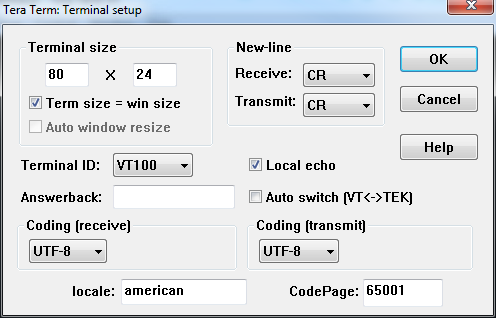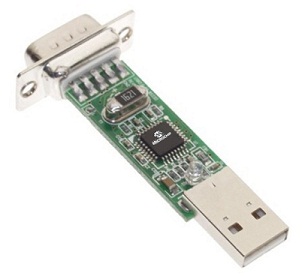Windows Serial Console Program In Netbeans
Advanced Serial Console on Windows. By Kattni Rembor. Windows 7 Driver. If you're using Windows 7, use the link below to download the driver package. Download the file and install the program on your machine. If you run into issues, you can try downloading the 32-bit version instead. However, the 64-bit version will work on most PCs. Running of a console application is rather awkward in the Windows environment. However, there is a possible to create an executable.exe file, which automatically open a command line window and run the application. There are several ways to create an executable file, however, using the built-in. Now you need to open PuTTY. Under Connection type: choose the button next to Serial. In the box under Serial line, enter the serial port you found that your board is using. In the box under Speed, enter 115200. This called the baud rate, which is the speed in bits per second that data is sent over the serial connection.
-->

This document defines the content of the Serial Port Console Redirection Table. This table is used to indicate whether a serial port or a non-legacy UART interface is available for use with Microsoft® Windows® Emergency Management Services (EMS).
The table provides information about the configuration and use of the serial port or non-legacy UART interface. On a system where the BIOS or system firmware uses the serial port for console input/output, this table should be used to convey information about the settings, to ensure a seamless transition between the firmware console output and Windows EMS output.
This table must be located in system memory with other ACPI tables, and it must be referenced in the ACPI RSDT table.
Patent Notice:Microsoft is making certain patent rights available for implementations of this specification under two options:
Jdk Netbeans Windows 10
- Microsoft’s Community Promise, available at http://www.microsoft.com/openspecifications/en/us/programs/community-promise/default.aspx; or
- The Open Web Foundation Final Specification Agreement Version 1.0 ('OWF 1.0') as of October 1, 2012, available at http://www.openwebfoundation.org/legal/the-owf-1-0-agreements/owfa-1-0.
Netbeans Download For Windows 7
| Field | Byte Length | Byte Offset | Description |
|---|---|---|---|
| Header | |||
| Signature | 4 | 0 | ‘SPCR’. Signature for the Serial Port Console Redirection Table. |
| Length | 4 | 4 | Length, in bytes, of the entire Serial Port Console Redirection Table. |
| Revision | 1 | 8 | 2 |
| Checksum | 1 | 9 | Entire table must sum to zero. |
| OEMID | 6 | 10 | OEM ID. |
| OEM Table ID | 8 | 16 | For the Serial Port Console Redirection Table, the table ID is the manufacturer model ID. |
| OEM Revision | 4 | 24 | OEM revision of Serial Port Console Redirection Table for supplied OEM Table ID. |
| Creator ID | 4 | 28 | Vendor ID of utility that created the table. For the DSDT, RSDT, SSDT, and PSDT tables, this is the ID for the ASL Compiler. |
| Creator Revision | 4 | 32 | Revision of utility that created the table. For the DSDT, RSDT, SSDT, and PSDT tables, this is the revision for the ASL Compiler. |
| Interface Type | 1 | 36 | Indicates the type of the register interface: For Revision 1:
For Revision 2: See the Serial Port Subtypes in Table 3 of the DBG2 Specification |
| Reserved | 3 | 37 | Must be 0. |
| Base Address | 12 | 40 | The base address of the Serial Port register set described using the ACPI Generic Address Structure. 0 = console redirection disabledNote: - COM1 (0x3F8) would be: Integer Form: 0x 01 08 00 00 00000000000003F8 Viewed in Memory: 0x01080000F803000000000000 COM2 (Ox2F8) would be: Integer Form: 0x 01 08 00 00 00000000000002F8 Viewed in Memory: 0x01080000F802000000000000 |
| Interrupt Type | 1 | 52 | Interrupt type(s) used by the UART. Bit[0] PC-AT-compatible dual-8259 IRQ interrupt Bit[1] I/O APIC interrupt (Global System Interrupt) Bit[2] I/O SAPIC interrupt (Global System Interrupt) (IRQ)Bit[3] ARMH GIC interrupt (Global System Interrupt) Bit[4:7] reserved (must be 0) 0 = not supported 1 = supported Platforms with both a dual-8259 and an I/O APIC or I/O SAPIC must set the IRQ bit (Bit[0]) and the corresponding Global System Interrupt bit.). E.g. an system that supported 8259 and SAPIC would be 5. |
| IRQ | 1 | 53 | The PC-AT-compatible IRQ used by the UART. 2-7, 9-12, 14-15 = valid IRQs respectively 0-1, 8, 13, 16-255 = reserved Valid only if Bit[0] of the Interrupt Type field is set. |
| Global System Interrupt | 4 | 54 | The Global System Interrupt (GSIV) used by the UART. Not valid if Bit[0] is the only bit set in the Interrupt Type field. |
| Baud Rate | 1 | 58 | The baud rate the BIOS used for redirection.
|
| Parity | 1 | 59 | 0 = No Parity 1-255 = reserved |
| Stop Bits | 1 | 60 | 0 = Stop bit 1-255 = reserved Wii u eshop games list download sizes. Because these devices have a limited number of rewrites and are not suited to long-term storage of important game data, we do not recommend the use of Flash/thumb drives as an external storage device solution. |
| Terminal Type | 1 | 62 | The terminal protocol the BIOS was using for console redirection:
|
| Reserved | 1 | 63 | Must be 0 |
| PCI Device ID | 2 | 64 | Must be 0xFFFF if it is not a PCI device |
| PCI Vendor ID | 2 | 66 | Must be 0xFFFF if it is not a PCI device |
| PCI Bus Number | 1 | 68 | PCI Bus Number if table describes a PCI device Must be 0x00 if it is not a PCI device |
| PCI Device Number | 1 | 69 | PCI Slot Number if table describes a PCI device Must be 0x00 if it is not a PCI device |
| PCI Function Number | 1 | 70 | PCI Function Number if table describes a PCI device Must be 0x00 if it is not a PCI device |
| PCI Flags | 4 | 71 | PCI Compatibility flags bitmask. Should be zero by default.
|
| PCI Segment | 1 | 75 | PCI segment number. For systems with fewer than 255 PCI buses, this number must be 0. |
| Reserved | 4 | 76 | Must be 0 |
Revision History

| Date | Rev | Description |
|---|---|---|
| 2/15/00 | .10 | Created |
| 3/1/00 | .50 | ‘SPCR’. Signature Data added |
| 3/20/00 | .55 | Data revised to include port and irq |
| 3/22/00 | .56 | Clarified port identification Added ability to disable redirection. Added pointer to the Generic Register Address Structure |
| 3/23/00 | .56a | Formatting, disclaimer, copy editing |
| 4/24/00 | .6 | Posted on web for WinHEC |
| 4/24/00 | .6 | Public review draft published |
| 5/25/00 | .61 | Correction to BASE_ADDRESS description |
| 5/25/00 | .61 | Public review draft published |
| 5/31/00 | .7 | Correction to BASE_ADDRESS description examples. Added 16540 interface |
| 5/31/00 | .71 | Changed the info on the GRAS from a note to a “*” |
| 5/31/00 | .71 | Public review draft published |
| 6/1/00 | .72 | Changed GRAS COM port examples to be little-endian Added text to the end of the line |
| 7/12/00 | .75 | Fixed IRQ Description. Fixed various format issues Added PCI bus information. |
| 7/26/00 | .76 | Update to PCI field name “Device Number”. Changed intro language to include non-legacy UART. |
| 8/10/00 | .77 | Changed interrupt information, adding APIC and SAPIC Added flow control |
| 9/22/00 | .78 | Added PCI Segment |
| 10/25/00 | .80 | Fixed PCI Flags section. Added Terminal Types Added 16450 FCR info |
| 10/1/01 | .95 | Removed language codes |
| 1/11/02 | 1.00 | adding updated licensing spec to 1.00 |
| 3/12/14 | 1.01 | Released under Microsoft Community Promise |
| 6/2/14 | 1.02 | Changed Table Revision to 2 and added support for additional Interface Types, as defined in the DBG2 specification. |
| 8/10/15 | 1.03 | Updated patent notice. |
| 7/23/2018 | 1.04 |